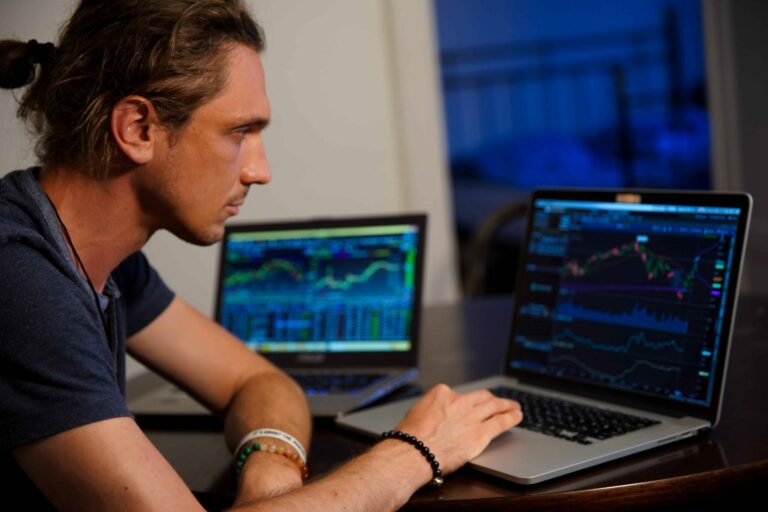Traders in the financial markets have access to many instruments and assets. While that may be true, not all assets are suitable for all traders. The trading model of an investor is dependent on the asset class they choose to trade. Therefore, picking an asset class that best suits their model is key to profitability.
Licensed brokerages like AvaTrade offer multiple trading instruments, which may leave an investor confused. Many investors struggle to stick to a particular asset class. If you’re affected by this, choosing can become more manageable if you compare different asset classes.
This article will compare Forex (Foreign Exchange) and Stocks trading to help you choose the best options for the type of trading model you decide to implement. We’ve considered specific parameters like leverage, volume, liquidity, volatility, and trading hours.
Forex vs Stocks
While both asset classes will require the same principles of investing in building a successful trading career, the implementation methods of these principles will differ for each type of asset class.
Here are some parameters to consider:
Top Australian Brokers
- eToro - market-leading social trading platform - Read our review
- IG - Extensive product array and user-friendly platforms - Read our review
- IC Markets - experienced and highly regulated - Read our review
- Avatrade - powerful trading tools - Read our review
Leverage
First, consider what the leverage brokerages can offer to traders on any given account. Generally, forex brokerages in Australia will provide leveraged accounts anywhere from 1:5 to 1:30. Offshore brokerages with a licence to operate in the country can also offer leveraged accounts up to 1:1000.
In contrast, it’s more common for stock trading brokerages to offer maximum leverage at 1:50 worldwide. Most brokerages in Australia will stick to 1:10 as their maximum leverage on stock trading.
Available leverage largely determines the minimum capital needed to start trading before making substantial profits. The better the leverage conditions, the fewer funds an investor needs to commit before making a trade.
Volume
The average daily trade volume in Forex currently sits around $6 trillion. That’s a lot of money, and an investor only needs a tiny piece of the pie to make significant profits.
Stocks, however, are currently maintaining an average daily trade volume of $200 billion. Although that’s a respectable amount compared to other asset classes, it comes nowhere close to what’s offered in Forex.
Where there’s volume, there’s liquidity, which translates to more movement. Stocks may be suitable for position traders, but short-term or day traders may find sticking to stocks somewhat challenging.
Liquidity
Large volume means significant liquidity – this is where Forex edges out over stocks. While the 28 Forex majors have their liquidity well distributed according to popularity, liquidity in stocks varies randomly depending on trending and individual market caps.
Likewise, higher liquidity means better spreads (difference between ask and bid prices) and lower costs on commission and swaps. This also supports the leverage systems as investors can start trading with low capital and build up over time.
Volatility
The level of volatility at any point is determined by trade volume and available liquidity. When there’s little liquidity in the market, it’s common to experience randomness, which is dangerous, especially for beginner traders.
Aside from high-impact news events and holidays, other factors rarely can contribute to altering volatility in Forex. On the other hand, many factors can affect stocks, including the company’s fundamentals, new government policies, the current nature of the economy, and even something as trivial as a Twitter post.
Although volatility is required for a market to move, it becomes a problem when the movements are inconsistent. Better liquidity means steady volatility. Therefore, Forex is the preferred choice for traders.
Trading Hours
Trading hours refers to the number of hours a trader can search for opportunities when the markets are open. However, it doesn’t determine the number of available daily options. Reduced trading hours can leave a trader’s position at risk because the market may move fundamentally, which will trigger repricing, resulting in a gap for the next open price.
Most brokerages, especially with ECN accounts, do not allow all stocks to trade 24/5 because trading an underlying stock will only be possible if the specific stock exchange where it’s listed is active. However, with Forex, we overlap trading sessions, making all pairs tradable 24/5. All forex pairs are connected; as such, a particular pair can’t be closed for trading across all brokerages.
When assets are not traded during the weekend, the markets still move fundamentally. Therefore, having maximum trading hours is essential to the occurrence of caps and price voids from the next open price.
Conclusion
These parameters were compared based on the experiences available in trading assets in CFDs. Although some brokerages offer E-mini futures and indices of stocks, the difference in the trading mechanism of both types of instruments is insignificant.





